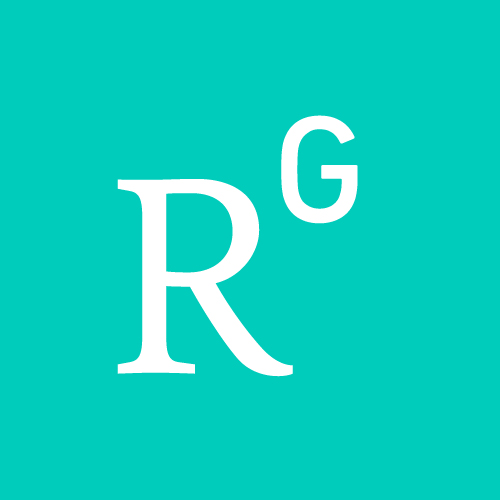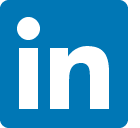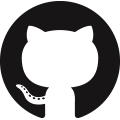Introduction
I am currently looking for new opportunities, particularly in the areas of statistics and machine learning; however, I am also highly interested in bacteria and bacteriophages. I come from a highly diverse scientific background. My studies and research projects have carried into several scientific genera, even connecting areas of interest I never thought possible. As I mentioned in my about me section, I am a chemist, microbiologist, and statistician. My projects have generally fall into one of these broad categories. The purpose of this page is present my skills in greater detail than a resume would go into, and hopefully, match with the job requirements and/or needs of prospective employers. Additionally, I have written a small Q & A section where I answer some common interview questions in order to give my perspective on the work environment.
Skills
Microbiology:
- Specific Bacteria and Bacteriophages I have had experience with:
- Bacillus anthracis (Sterne) and γ-phage
- MRSA and MSSA
- E. coli and MS2 phage
- Aseptic technique and BSL2 training
- Bacteria and bacteriophage propagation, collection, concentration determination, and storage.
- Lateral flow immunochromatography
- Bruker Biotyper®
Computing and Programming:
- Python (approx. 2 years): I used python to write some code for my dissertation work (the code is on my GitHub). I was dormant for a couple of years, but recently I started studying again. I’m working through an online course and I take on challenges at Codility and Sphere Online Judge. I still lack GUI programming skills.
- C++ (3 years): I studied C++ in high school for two years and then another year in college. It has been a long time since I’ve coded in C++, but I’m always wiling to pick up the torch again, if needed.
- R (3 years): I also used R for my dissertation work. Learning to code in R opened up a whole new world of statistics and machine learning to me. It inspired my passion to learn more, and I love looking for patterns in data.
- GitHub: I just started a new GitHub account. I’m still learning the ropes, but it’ll be a great place to put all my code.
- LaTeX (1.5 years): I used LaTeX to prepare my dissertation and a few journal articles. I’m not an expert, but I usually have no difficulty preparing articles using publisher templates.
- Linux (10 years, on and off): I now use Linux as my default desktop OS. My distro of choice is Manjaro, because I like the Arch pacman package manager and the lightweight feel of the distro, and also because Manjaro has wonderful KDE (my desktop environment of choice) integration. That being said, I’ve also used Mageia, Mint, Gentoo, Bridge, Chakra, Fedora, and CentOS. among others.
- Windows and Mac: I am also fully able to use Windows (having been a die hard windows user for years) and MacOS. Additionally, I can use the Microsoft Office suite and LibreOffice in an expert fashion.
- Hardware (20+ years): I have been building PCs since my late teens. Every few years I build a new rig; I read about the latest advances and pick each part carefully. I consider this one of my favorite hobbies.
- Website Development: I am still new to this, but I managed to get this site up and design it how I wanted it. Still have a lot to learn, but I love working on it.
Chemistry:
- Mass Spectrometry (10 years): Using mass spectrometry (MS) was a major part of my dissertation projects, and I continue to work with different types of MS. I have experience using:
- Electron ionization
- Electrospray ionization
- Electron monochromator
- Gas-chromatography MS
- Triple-quadrupole MS
- Matrix-Assisted Laser Desorption/Ionization (MALDI)
- SALDI and MOLI as well
- Miniaturized multi-turn time-of-flight (MULTUM) MS
- Other spectroscopic methods:
- Atomic absorption
- Atomic emission
- Infrared
- Inductively coupled plasma
- Graphite furnace AA
- Wet chemistry (10 years): I spent three years in industry and six years of graduate school performing various wet chemistry techniques. I also taught college labs geared toward such.
Statistical Skills:
- I have spent the last 6 years heavily integrating various statistical methods into my projects. Much of my research depends on analysis done with multivariate techniques. I have explored the following methods in depth:
- Soft independent modeling of class analogies (SIMCA)
- Principal components analysis (PCA): I have extensive experience using PCA in my research; a lot of my microbiology work depended on good PCA models.
- Linear discriminate analysis (LDA)
- Random forest: a more-recently learned technique that’s fast becoming my favorite technique for supervised class assignment.
- K-nearest neighbor (KNN)
- Cross-validation (typically leave-one-out)
- Hierarchical clustering (dendrograms)
Languages:
I am a native English speaker. I can also speak Japanese at a conversational level and I can read and write with a dictionary. I am highly vested in learning Japanese to communicate with my Japanese wife, so I will be continuously studying it, whether I use it in business or not. I am currently working on making a Japanese version of this site. Please check back for updates.
Q & A
I have put together this Q&A section to answer some questions interviewers might be interested in and to provide some insight into how I view the work environment. I hope you find it informative.
1. What are your strengths?
When I get really focused on a task I can just go and go and go. I also think that I’m good at looking at problems from multiple perspectives, and I try to apply my interdisciplinary talents at solving them. I am comfortable with public speaking and I love to present my projects at scientific conferences. I love to network and collaborate, and international collaborations are of high interest. If possible, I would also like to teach and/or mentor students and researchers.
2. What are your weaknesses?
Sometimes I procrastinate things I shouldn’t. To work around this, I work other other projects and then switch over when I’m in a productive groove. Also, I tend to let my office get disorganized. In some respects, it can’t be helped, but every so often I spend half a day cleaning and organizing in the interest of staying productive (I find it’s a good thing to do when I’m stuck on a problem and need to direct my focus to something else).
3. How do you feel about overtime?
I have no problem working overtime when a deadline approaches or when I’m in an extremely productive mood, however, I don’t want overtime to be a common thing. I believe overworking is less productive and leads to job unhappiness. When required to work overtime, I expect to be compensated either by pay or by leaving work early on days where there are no critical deadlines.
4. What is the most important part about the work environment to you?
Fitting in with the team. I have found it is much easier to do a job that isn’t fun with people you get along with than it is to do a fun job with people you don’t. Fitting in with team is imperative to accomplishing tasks efficiently. Good teamwork has a good feeling that promotes more teamwork.
5. Describe a time you made a mistake.
In graduate school, I was working with a piece of instrumentation that was very unique (only 5 or 6 in the whole world), and the company that made it discontinued it. While I was cleaning it one day, I broke a critical part. The device would not work without it. I remember being scared to tell my adviser about it, especially because he could be scary if he was mad enough. When I finally told him he said “That’s just what happens when you do research; things break. It means your making progress. Go find a way to fix it.” This was an important lesson for two reasons: one, it’s better to communicate problems; two, stressing about making a mistake is a waste of time. It’s better to get working on a new solution. I talked with a few people and was able to get a replacement part fabricated (albeit, at a cost).
6. What are your career goals? What is your ideal job?
I would like to spend my days analyzing big data and looking for patterns. In particular, multivariate statistics on microbiological data is a passion of mine. I would like to work somewhere that has a cohesive team (see question 4) and solve complex problems. Ideally, I would like a flexible work schedule with minimal overtime requirements. For benefits, I’m looking for reasonable paid-time-off allotment, a retirement savings account with company matching, and good health insurance. For my career goals, I would like to continue to publish results in peer-reviewed journals and attend scientific conferences. I wish to be a part of collaboration projects, both nationally and internationally.


